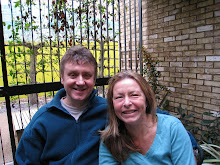I’ve just read an article by Jenni Russell in the Guardian about dealing with the death of a loved one and how modern day society does not include the coping mechanisms that previous generations had. In particular it’s talking about a lack of ability to communicate emotions between the bereaved, and their friends and associates. This was something I felt very strongly when my mother died 18 months ago and something which I often think about when I observe the rituals surrounding death in Eritrea.
The concept of newspaper obituaries does not exist here (they’re a bit short on newspapers too but that’s another story). A death is written about with a photo on a sheet of paper which is photocopied and put up on walls, shop windows etc. so that all passers-by can stop and read. At the home of the deceased a large tent is erected, in the compound if there is room but more often then not the tent covers most of the street outside. Any traffic simply has to take a different route. The tent, and often the road is filled with chairs. This remains for ten days. During that time people pay their respects by coming and sitting for any time. I’ve known people sit for only 5 minutes in the middle of a working day and return to sit for hours when they were able to. At the beginning of the mourning period the immediate family will sit for most of the day, giving way to tears and wailing when they needed to. People often do not feel the need to say anything to the family, sitting with them is felt to be enough.
A member of the Curriculum Department where I work died a few months ago and I accompanied my colleagues to the family house in the afternoon after the morning when she had died. I did not know her but it was felt that it was right, as I worked in the same place that I should go. We sat for thirty minutes in silence (in fact the tent was being erected around us as we sat – everyone gave a hand) and then went back to work. My colleagues returned several times over the next few days.
The situation provides a great atmosphere of empathy and support, spoken or unspoken , as the individual feels appropriate. To me it seems to bridge the gap, which I felt very acutely with my mother’s death, between a loved one being there and then suddenly not being there.
C
Friday, 2 January 2009
Subscribe to:
Post Comments (Atom)




No comments:
Post a Comment